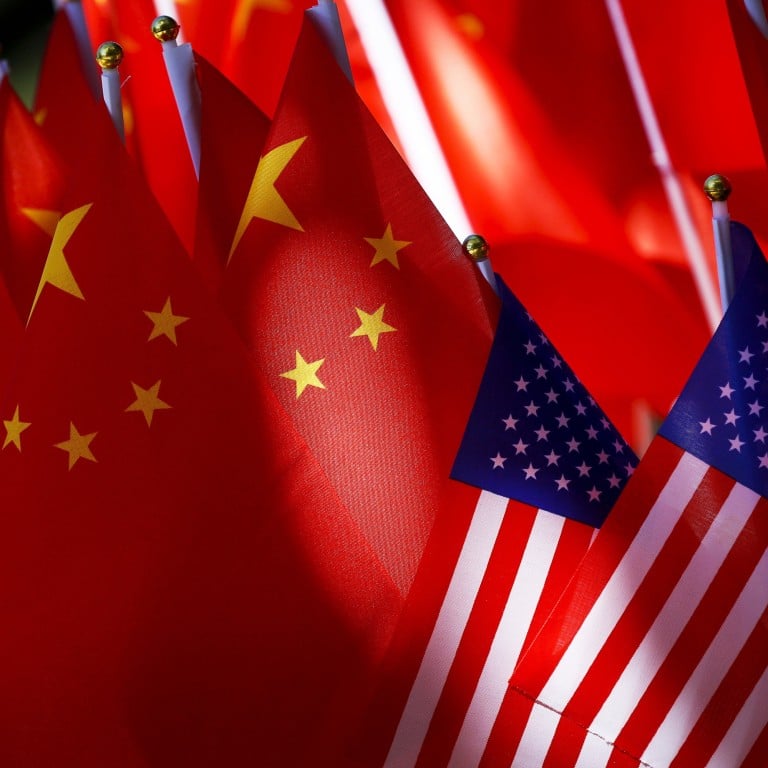
‘Yoked together’: Experts on US-China ties urge powers to embrace shared interests – and introspection
- With ties at ‘crucial juncture’, the giants should find common ground on challenges such as climate change, AI and debt, according to Harvard forum
- They must also confront their own troubles, from China’s middle income trap to US political division, says former US treasury secretary Larry Summers
“We are yoked together by common interest in mutual success, even if there are many areas of sharp ideological difference,” said Larry Summers, former US treasury security and ex-president of Harvard University. “That is the challenge that the US and China face today.”
How far did Janet Yellen’s trip move the ball for US-China relations?
“What happened in San Francisco at the summit between President Xi and President Biden was the creation not just of a floor under what had been a rapidly deteriorating relationship but actually a pretty strong foundation,” said Graham Allison, a Harvard professor and former US assistant defence secretary.
“This San Francisco consensus, as Xi Jinping calls it, has not just been embraced by President Biden on the American side … President Xi has made it his own,” he told the 27th Harvard College China Forum.
On Saturday, the US State Department announced that Daniel Kritenbrink, assistant secretary of state for East Asian and Pacific affairs and Sarah Beran, National Security Council senior director for China and Taiwan Affairs, will travel to China “as part of ongoing efforts to maintain open lines of communication and to responsibly manage competition” from Sunday to Tuesday.
“This is what’s required if you’re going to have serious countries dealing with each other seriously,” Allison said.
“This foundation they’re building, I believe will bring a much more constructive and productive relationship, at least this year.”
Xi-Biden call was a timely talk about ‘strategic perception’ as tensions flare
Summers said China has had an amazing and historic rise, noting that the country had dramatically increased its per capita income.
“This is a remarkable achievement in which China can and should take pride,” he said.
But both giants need to engage in some introspection, he added.
Even as China has accomplished miraculous economic growth, it faces the middle income trap, environmental degradation and a demographic transition “on steroids” amid a sharp decline in birth rates.
The US, for its part, is deeply divided politically, suffers from massive economic inequality and is weathering social resentment and a loss of confidence in its institutions.
“I am someone who has always thought of himself as a friend of China, whose instincts have been that the United States will succeed in its relationship with China, will succeed in its global objectives, if it avoids truculence, if it avoids measures that can be seen as trying to suppress or hold China down,” Summers said.
Yet a successful, open regime should be based on the power of rules, rather than the rule of power, he added, and the growth in China’s military spending, wolf warrior diplomacy, cybersecurity policies and intrusions into other societies have made it harder to defend norms in the mutual relationship, Summers added.
“My hope in this crucial juncture in the year 2024 is that on both sides, we can find some areas, perhaps artificial intelligence, perhaps the environment, where we could cooperate,” Summers said. “And we can find other areas in which we can respect each other’s boundaries.”
In Wang-Blinken call, China urges US to play constructive Middle East role
Allison said the good news was that it had been 79 years since the last great power war, a “historically long peace”, but the bad news was that there was a genuine Thucydides rivalry – the idea that a rising power and a declining power are often destined for confrontation – between the nuclear-armed US and China, “and neither will give much”.
Allison added that the hope is for some sort of strategic framework – what Xi and Biden attempted to initiate during their summit in California – that can allow fierce competition and serious cooperation to coexist.
Jason Furman, a Harvard professor and former chairman of the US Council on Economic Advisors, added that China and the US have benefited enormously from their long and interconnected relationship in business, supply chains and their broad economies.
“The two countries clearly have common interests like climate change, and global debt,” he said. “It helps set the stage for doing a better job on global peace and security.”

